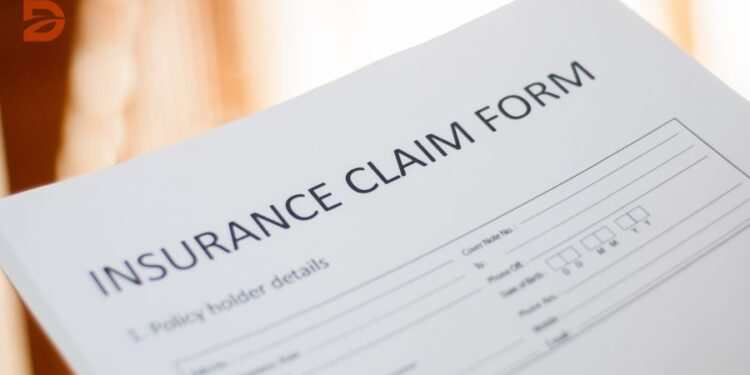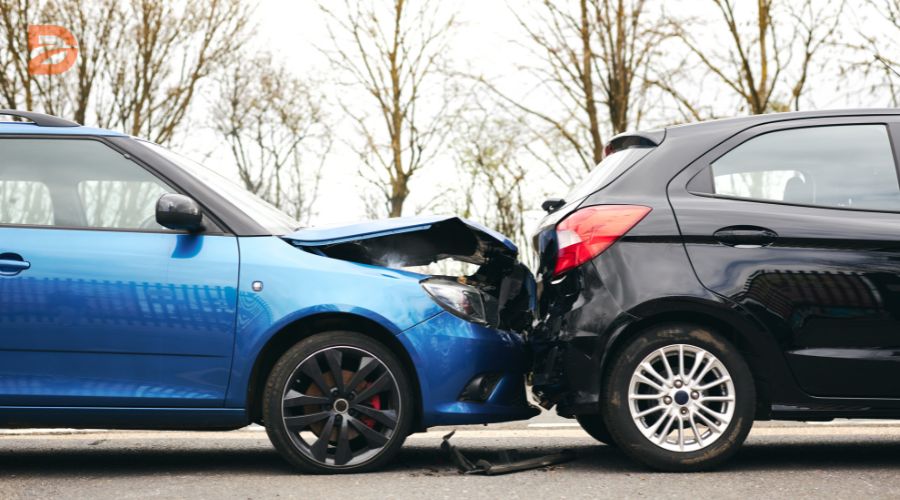Each year, over 6 million car accidents occur in the United States, leaving victims overwhelmed with the complexities of filing insurance claims and navigating the legal system. However, with the right strategies and knowledge, you can successfully advocate for your rights and maximize your compensation. This comprehensive guide will walk you through the essential steps to handle car accident claims like a professional, from staying calm at the scene to understanding the arbitration process and weighing the pros and cons of settling without legal representation.
Key Takeaways
- Understand the fault-based insurance system in Arkansas and the minimum coverage requirements.
- Learn the crucial steps to take immediately following a car accident, including reporting the incident and documenting the scene.
- Explore the arbitration process and its key components, as well as the potential benefits and drawbacks of this approach.
- Discover the steps to settle a claim without a lawyer, while being aware of the risks involved.
- Recognize the importance of seeking legal counsel to navigate the complexities of car accident claims and maximize your compensation.
Stay Calm and Take Necessary Steps
In the aftermath of a car accident, it’s crucial to stay composed and take the necessary steps to ensure your safety and document the incident. The priority is to move your vehicle to a safe location, such as the side of the road if it’s still drivable. This helps prevent further collisions and allows you to assess the situation calmly.
Call Emergency Services
Immediately after the accident, call emergency services to report the incident and request medical assistance if needed. Provide the dispatcher with accurate details about the location, any injuries, and the nature of the accident. Remain on the line until instructed to hang up, as the operator may need additional information.
Exchange Information and Document the Scene
Once the vehicles are in a safe position, exchange crucial information with the other driver(s) involved. This includes names, contact details, insurance information, and license plate numbers. Take photographs of the accident scene, the vehicles involved, and any visible injuries or property damage. This documentation will be essential when filing the car accident checklist and the police report.
By staying calm and following these steps, you can effectively navigate the initial aftermath of a car accident, ensuring your safety and laying the groundwork for a successful accident scene and police report documentation process.
Understanding the Arbitration Process
When it comes to resolving car accident claims, arbitration can be a valuable alternative to traditional litigation. Arbitration is a method of dispute resolution that involves a neutral third party, known as an arbitrator, who reviews the details of the case and makes a binding settlement decision. Understanding the key components and steps of the arbitration process can help you determine if this route is the best option for your car accident claim.
Key Components of Arbitration
Arbitration offers several advantages over going to court, including a more streamlined and cost-effective process. Some of the key components of arbitration include:
- Private and confidential proceedings, unlike the public court records
- Faster resolution, sometimes within months instead of years
- Reduced legal costs, as there is less attorney work and fewer expenses associated with discovery, motions, and jury costs
- Binding decisions with limited appeal options, unlike jury verdicts
- Specialized expertise of the mutually agreed-upon arbitrator
Steps of the Arbitration Process
The arbitration process typically involves the following steps:
- Selection of the arbitrator: The parties involved in the car accident claim mutually agree on an impartial arbitrator, often a retired judge or lawyer with expertise in arbitration.
- Preparation and submission of evidence: Both parties gather and submit relevant evidence, documents, and arguments to the arbitrator.
- Arbitration hearing: During the hearing, the arbitrator listens to the arguments and presentations from both sides and may ask questions to clarify the details of the case.
- Arbitrator’s decision: The arbitrator reviews the evidence and makes a final, binding decision on the settlement of the car accident claim.
Resolving a car accident claim through arbitration can provide a more efficient and less formal alternative to going to court, helping to ensure a quicker resolution and potentially lower costs.
Pros and Cons of Arbitration for Car Accident Claims
Choosing arbitration over litigation for your car accident claim has both advantages and disadvantages to consider. Understanding the benefits and drawbacks can help you determine if arbitration is the best course of action for your specific situation.
Benefits of Arbitration
- Faster resolution timeline, with cases potentially resolved in a single day
- Ability to mutually select the arbitrator, ensuring a neutral and agreeable process
- Generally lower legal costs compared to traditional litigation
- More informal and agreeable dispute resolution process
- Possibility of a “high-low” agreement, setting a minimum and maximum payment regardless of the arbitrator’s decision
Drawbacks of Arbitration
- Limited appeals process, with binding arbitration decisions being final and non-appealable
- Potential issues with evidence rules and cross-examination of witnesses, which may impact the presentation of your case
- Concerns over the consistency and transparency of the arbitration process, as decisions, can vary depending on the selected arbitrator.
- Lack of a formal jury trial, which some claimants may prefer for their car accident claims
Carefully weighing these pros and cons and seeking advice from an experienced car accident lawyer can help you determine if arbitration is the best course of action for resolving your car accident claim.
| Arbitration Advantages | Arbitration Disadvantages |
|---|---|
| Faster resolution timeline | Limited appeals process |
| Mutual selection of arbitrator | Potential issues with evidence rules |
| Lower legal costs | Consistency and transparency concerns |
| More informal dispute resolution | Lack of formal jury trial |
| Possibility of “high-low” agreement |
“An experienced car accident lawyer can provide valuable assistance in navigating the arbitration process, including selecting a neutral arbitrator.”
Car accident claims, insurance claims
Understanding the different types of claims and insurance coverage can be crucial when you’re involved in a car accident. From liability coverage to property damage and personal injury protection, navigating the process ensures you receive the compensation you’re entitled to.
Liability coverage comes into play when the accident is the other driver’s fault. This pays for the damages and injuries caused to the other party. On the other hand, your insurance policy may cover your personal injuries and vehicle damage, regardless of who was at fault, through no-fault or personal injury protection (PIP) coverage.
It’s essential to file an accident report with the Department of Motor Vehicles if the damage exceeds $1,000 or if anyone is injured. No-fault benefits claims must be submitted within 30 calendar days of the accident, and insurers must make payments within 30 days of receiving the healthcare provider’s claim.
Insurance companies have specific timelines and requirements when it comes to settling claims. For example, they must make a good faith offer and detailed written estimate within six business days of receiving a claim under auto collision or comprehensive coverage, and payment must be made within five business days post-settlement agreement.
Understanding these regulations and the claims process can help you navigate the complexities of car accident claims and ensure you receive the coverage and compensation you’re entitled to.
Steps to Settle a Claim Without a Lawyer
If you’ve been involved in a car accident and decide to settle the claim without legal representation, there are several crucial steps to follow. First and foremost, it’s essential to determine the full extent of your damages, including medical bills, lost wages, and any pain and suffering. This will help you arrive at a fair settlement amount to pursue.
Next, you’ll need to identify all responsible parties involved in the accident, such as the at-fault driver or their employer. Gathering comprehensive evidence, like witness statements, police reports, and medical records, will strengthen your case and support your claim.
- Determine the Extent of Damages
- Identify Responsible Parties
- Gather Evidence
- Write a Demand Letter
- Review Settlement Offers
- Act Within the Statute of Limitations
Once you’ve gathered the necessary information, it’s time to write a well-crafted demand letter outlining the details of the accident and your proposed settlement amount. Be prepared to review any settlement offers from the insurance company carefully and negotiate if needed.
Finally, it’s crucial to be mindful of the statute of limitations in your area, which typically ranges between two and four years, depending on the jurisdiction. Ensuring you file your claim within the necessary time frame is essential to preserving your legal rights.
| Claim Type | Average Compensation |
|---|---|
| Bodily Injury | $20,235 |
| Property Damage | $4,711 |
While settling a car accident claim without a lawyer can be a viable option, it’s important to keep in mind that complex cases or significant injuries may benefit from the expertise and support of a legal professional. By following these steps, you can navigate the settle car accident claim process more effectively and increase your chances of receiving fair compensation.
Risks of Settling Without Legal Representation
While it may seem tempting to settle a car accident claim without involving a lawyer, this approach carries significant risks that can ultimately cost you dearly. Insurance companies have experienced legal teams working to minimize payouts, placing you at a serious disadvantage if you try to navigate the process alone.
Without the expertise of a skilled personal injury attorney, you may end up receiving far less compensation than you rightfully deserve. Studies show that individuals who settle a car accident claim without legal representation may receive up to 3.5 times less compensation than those who hire a lawyer. Insurance adjusters are known to offer settlement amounts that are 40% lower to claimants without legal representation than to those with attorney representation.
- Personal injury claimants without legal representation risk overlooking crucial elements, leading to an undervaluation of their case without considering factors like medical expenses, lost wages, and long-term impacts.
- Missing filing deadlines or improper completion of documentation due to a lack of legal guidance can jeopardize the entire personal injury claim.
- In cases where negotiations or litigation are required, individuals without legal representation face challenges as lawyers skilled in personal injury law possess expertise in navigating complex legal negotiations and court proceedings.
The guidance of a seasoned personal injury lawyer can significantly enhance your chances of securing adequate compensation. Around 60% of car accident claims settled without legal representation lack crucial evidence required to build a strong case compared to cases where lawyers are involved. Furthermore, cases represented by skilled attorneys are 80% more likely to receive compensation for intangible damages like pain and suffering.
“Successfully navigating legal procedures with an attorney increases the likelihood of a fair and just settlement by 85% compared to handling the claim independently.”
Ultimately, the risks of settling a car accident claim without legal representation far outweigh the potential savings. Protecting your rights and maximizing your compensation should be the top priority, which is why seeking the guidance of an experienced personal injury lawyer is crucial.
Conclusion
Navigating the complexities of car accident claims and insurance claims can be a challenging task, but with the right knowledge and strategies, you can successfully advocate for your rights and maximize your compensation. Whether you choose to pursue arbitration or settle your claim without legal representation, it’s crucial to understand the pros and cons of each approach and the essential steps involved.
By staying calm, documenting the accident scene, and seeking the appropriate guidance, you can increase your chances of a favorable outcome and recover the compensation you are entitled to. Remember, understanding the nuances of fault, liability, and the claims process in California is essential for protecting your financial well-being following a car accident.
With the information provided in this article, you can now approach car accident claims and insurance claims with confidence, making informed decisions and navigating the settlement process effectively. Take the time to review the relevant laws, regulations, and best practices, and don’t hesitate to seek professional assistance if needed to ensure a successful resolution to your case.
FAQ
What are the essential steps to take immediately after a car accident?
Immediately after a car accident, it’s crucial to stay calm and take the necessary steps to ensure your safety and document the incident. First, move your vehicle to a safe location, such as the side of the road, if it’s still drivable. Next, call emergency services to report the accident and request medical assistance if needed. Finally, exchange information with the other driver(s) involved, including names, contact details, insurance information, and license plate numbers. Take photographs of the accident scene, the vehicles involved, and any visible injuries or property damage.
What is the arbitration process for resolving car accident claims?
Arbitration can be a valuable alternative to traditional litigation when resolving car accident claims. In the arbitration process, a neutral third party, known as an arbitrator, reviews the details of the case and makes a binding settlement decision. Understanding the key components of arbitration, such as the private and cost-effective nature of the process, as well as the steps involved, from arbitrator selection to the final award, can help you determine if this route is the best option for your car accident claim.
What are the pros and cons of arbitration for car accident claims?
Choosing arbitration over litigation for your car accident claim has both advantages and disadvantages to consider. The benefits of arbitration include the ability to mutually select the arbitrator, a faster resolution timeline, lower legal costs, and a more informal and agreeable process. However, the drawbacks include limited appeals, potential issues with evidence rules and cross-examination of witnesses, and concerns over the consistency and transparency of the arbitration process. Carefully weighing these pros and cons can help you determine if arbitration is the best course of action for your specific car accident claim.
What are the different types of car accident claims and insurance claims?
When you are involved in a car accident, you have the option to pursue a claim against the at-fault driver’s insurance or your insurance, depending on the circumstances of the accident and the coverage you have. Understanding the different types of car accident claims and insurance claims, such as liability coverage, property damage, and personal injury protection, can help you navigate the process and ensure you receive the compensation you are entitled to.
What are the steps to settle a car accident claim without a lawyer?
If you choose to settle a car accident claim without the assistance of a lawyer, there are several important steps to follow. First, determine the full extent of your damages, including medical bills, lost wages, and pain and suffering. Identify all parties responsible for the accident, such as the at-fault driver or their employer. Gather comprehensive evidence, such as witness statements, police reports, and medical records, to build a strong case. Write a well-crafted demand letter outlining the details of the accident and your proposed settlement amount. Carefully review any settlement offers from the insurance company, and be mindful of the statute of limitations in your area to ensure you file your claim within the necessary time frame.
What are the risks of settling a car accident claim without legal representation?
While it is possible to settle a car accident claim without the help of a lawyer, there are significant risks to this approach. Without legal expertise, you may end up receiving less compensation than you deserve, make critical mistakes that jeopardize your ability to recover, or unknowingly give up your rights. Insurance companies have experienced legal teams working on their behalf, putting you at a serious disadvantage if you try to navigate the process alone. Hiring an experienced attorney can maximize your chances of obtaining a fair settlement, ensuring your rights are protected and that you are fully compensated for your losses.










